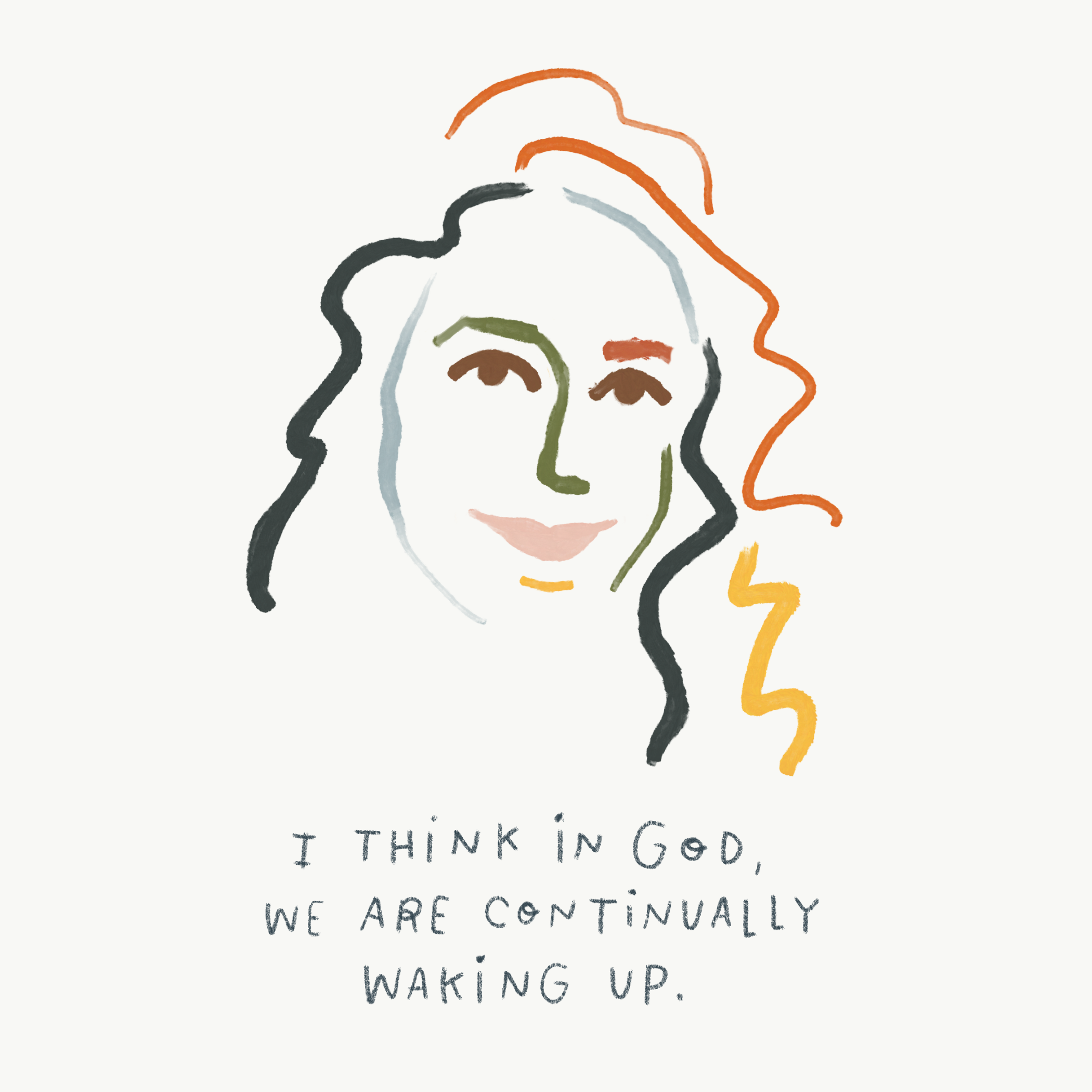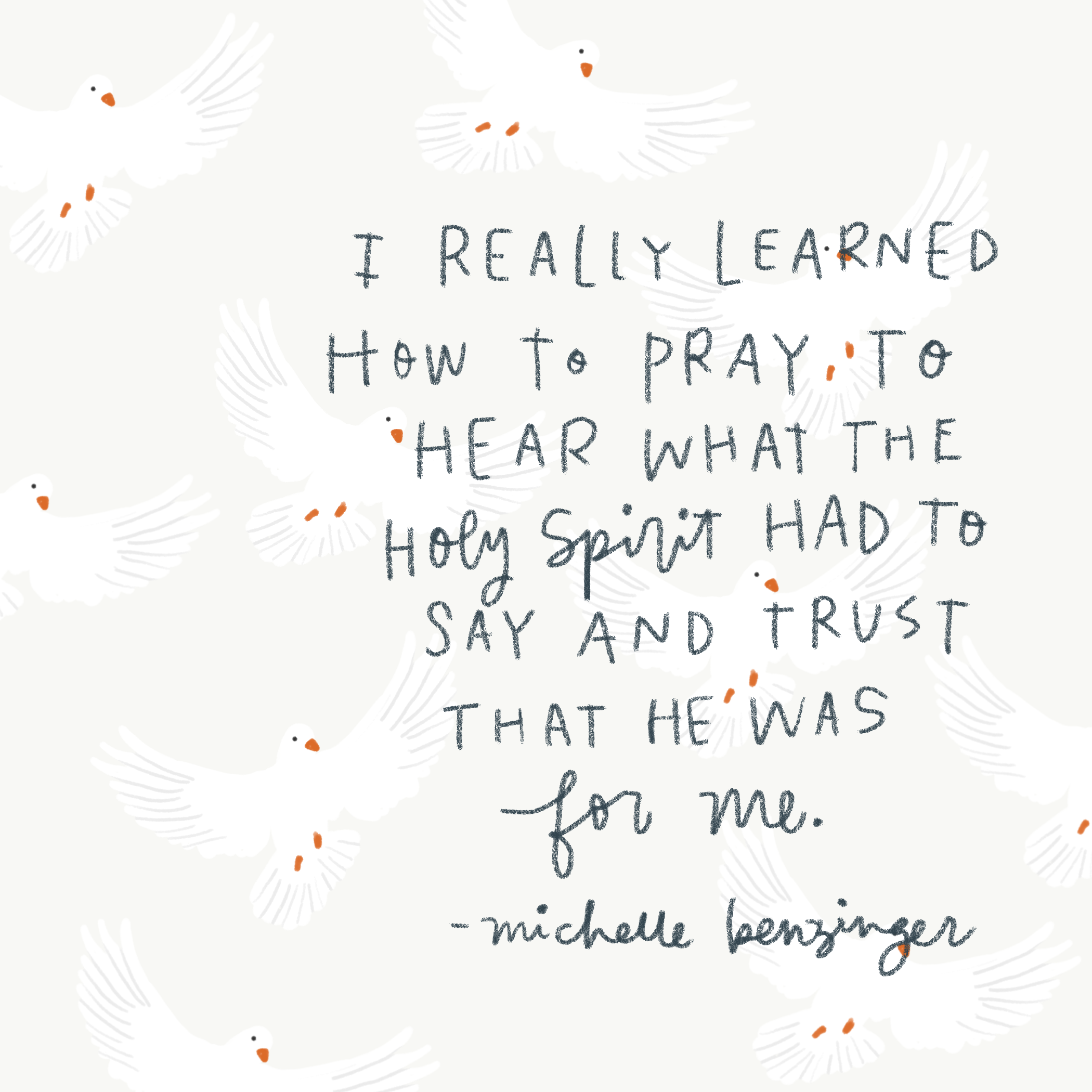Becoming Myself: Steven Lawson
Steven Lawson is the creator of Monk Manual, a daily system for being + doing. Over the last few years he has helped me to become more myself and so I wanted to know about his own journey. He is the father to three (really cute) kids and husband to Lauren.
I asked him a few questions below!
At what point in your life did you begin the journey to really know yourself, step into who you are, and embrace the call that God uniquely gave you? What was the impetus?
In a sense I feel like my own journey is one of knowing myself, and then forgetting myself, only to later return.
When I think of myself as a little boy for example, I really did know myself. Children tend to have a certain level of connection with themselves that is expressed through their simplicity, naturalness, and presence. We sometimes look at children and think their simplicity is due to a lack of experience or knowledge, but I think that’s wrong. There is nothing as simple as being yourself and children live out of that principle.
Somewhere along the line things change for us. We learn that there are certain parts of ourselves we don’t like that much, or parts that no longer serve the model of how we would like to be seen. This change can be gradual or it can take place rather violently due to a specific trauma or an inciting event.
I have this image where our hearts are like a rooms furnished since our birth. We may rearrange things, or hang up our posters on the walls over time, but fundamentally this is a space that is specifically for us. We feel “home” in this place, because it is uniquely our own. It’s our interior home and we feel comfortable there. It’s a place where we feel belonging with ourselves.
At a certain point we decide this isn’t the room we really want. We end up eventually denying parts of ourselves. We take some of the furniture in the room and put it in the attic, thinking we can always bring it back down at some later date. And piece by piece we replace the heirloom furniture with cheap replacements from Ikea. Or worse we leave the room entirely and board it up out of shame and/or self hatred. And as a consequence we no longer feel a sense of belonging to ourselves, which is actually a quite terrible experience to go through.
Something I’ve been thinking about lately is that no one is born with the desire to be successful. This great American ideal, which so many of us feel attracted to, is not actually our own desire. It’s something we learn. And because it is so pervasive in our culture, it feels natural, as if we couldn’t imagine not desiring it.
I believe so much of our identity and desires belong to others, not ourselves. And this isn’t just limited to our work life or spending habits. It also plays out in our most important relationships and our spiritual lives.
The last three years have been a process of me rebuilding that interior room and restoring the things that I had forgotten. Part of what spurred this was some of the Ikea furniture started to break down and fall apart, because the things we manufacture rather than inherit aren’t very well made. The other part was the aching sense of not feeling at home with myself. It’s a terrible feeling that is hard to pin down, and I do believe many, many, people struggle with this.
As far as a sense of calling goes, my experience is that when you learn to live out of your place of “home,” the calling piece comes very naturally. It’s intuitive and connective, it in a sense emerges because it’s always been there. It becomes rather simple, because there is nothing simpler than being yourself.
What led you to create the Monk Manual, this amazing tool that is helping so many people set their priorities and reflect on the past and move towards the future?
I once read that if you want to write a good book, find something you don’t understand from your personal life and write about it. I’m actually not naturally very good at slowing down and just being. I’ve spent years with a sense of go go go and rushing through life. And it didn’t work. I took pretty much everything modern productivity advice preaches and pushed it to it’s limit only to find it doesn’t lead to a fuller life. It actually made me feel a greater sense of disconnect and loss.
When you look closely at the self-help genre you will find a massive industry built around selling to the ego and insecurity. We are never going to get anywhere personally or as a people if we subscribe to programs of life that are designed to feed the ego.
I thought there has to be a better way and I saw in monks an alternative path built off a different set of premises for what human flourishing could look like. They have a system that works and I figured that while we in the world can’t port over the exact form that monasticism takes in a monastery we can port over its function. So I went about trying to create that system.
Lastly there was something mysterious about the whole thing, it really did feel guided. A lot of it I don’t feel like I understood, but rather sensed and just tried to follow.
What do you think the story is that God wants to tell with your life? What does the Holy Spirit want to reveal of Christ’s nature with your own personal mission?
I can only guess at this, but I can share what I’d like it to be.
There is a beautiful image in Eastern Orthodoxy where God is a point in the center of a circle. Every member of humanity is on their journey towards that center, all with different itineraries and different distances from the center.
The idea behind this image is that you can’t get closer to God without simultaneously getting closer to those who are also journeying closer to God. And this dynamic transcends all tribal boundaries. And I think that’s quite beautiful.

I’m really passionate about unity and about healing. I also have this ongoing deep desire to be more honest with myself, and for the world to be more honest with itself. So I imagine my story will have something to do with those things.
Which Saint has been your closest ally lately? What do you learn from them?
I think that saints tend to choose us rather than the other way around.
While he’s technically not a saint lately the person I actually think about and draw inspiration from the most is Moses. In a strange way I really relate to him and lately his life has been moving from black and white to full color.
Therese of Lisieux is someone who always seems to be there, and I’m consistently inspired by her confidence, simplicity, and love.
Lastly I’ve recently been really interested in the great spiritual figures of France since the Enlightenment. I see a certain thread running through their work and vision, and while I haven’t figured out what it is just yet, I think there is something really important going on there.
What does your daily prayer routine look like?
I have a series of prayers and practices I do each day that are rather simple. Some are traditional and a few I have written. I used to approach my prayer life like a long to do list. I don’t anymore. I still have some set items and set times, but it’s more fluid. Right now I think that is appropriate for me and my stage of life. I also am a big believer that what we need in one season of life is different from what we need in another. When we are too rigid we run the risk of missing the new work we are being drawn into.
The majority of my prayer time is spent throughout the day in the furnished room I described earlier. Often if I pause during a conversation or close my eyes that is where I’m going. Sometimes it’s at the grocery store, sometimes it’s in a conversation. This practice is a great source of consolation and clarity for me.
What books or resources would you recommend to others who want to enter the journey of discovering who God has made them to be?

I recently finished this and found it to be remarkably honest and insightful. Highly recommend.
While it sounds like a defensive book centered on culture wars, it’s actually an explanation of what life is like in a secular world and how that shapes our experience and humanity. I think Charles Taylor may be the most important thinker of our times. I’ve been recommending this book to everyone I talk to lately.
About tennis, but mostly about what goes on in your head. Changed a lot for me and is a great book.
If you are looking for a tangible way to connect more fully with yourself and with God, I highly suggest investing in the Monk Manual (and not just because I got to design it)! It really is an amazing tool unlike anything else you will find.





Leave a comment
This site is protected by hCaptcha and the hCaptcha Privacy Policy and Terms of Service apply.